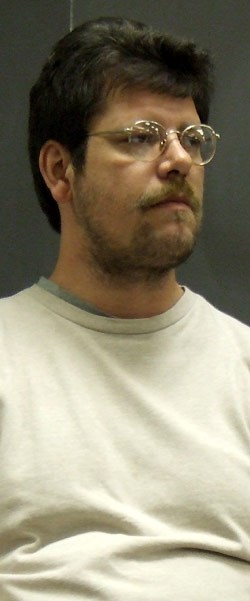William Mullins-Johnson spits the words "rehabilitation and healing" like poison.
"They claim rehabilitation, healing," he told a community forum today at Batchewana Learning Centre. "It's all a bunch of bullshit" he says. "I was sent to prison to die and of that I have no doubt."
Mullins-Johnson spoke today alongside his uncle Gordon Boissineau and his chief, Dean Sayers.
He was recently cleared of the rape and murder of his four-year-old niece Valin, after serving 12 years in prison because of what many are calling a rush to judgment.
Throughout his time in prison, Mullins-Johnson maintained his innocence.
"I got death threats every day in there and I could have been killed any day in there," Mullins-Johnson says. "And this was done to me intentionally."
"At 7 a.m. on Sunday June 27, 1993, Valin's parents found their daughter lying dead on her bed," reads the appeal citation of October 19, 2007.
The citation goes on to recount that the autopsy of Valin Johnson by Dr. Bhubendra Rasaiah began at 12:55 p.m. but Rasaiah, director of pathology at Sault Area Hospital's general campus, did not begin dissection until after consulting with Dr. Charles Smith of the Hospital For Sick Children in Toronto, describing his preliminary observations to him.
"At around 2:50 p.m., Dr. Smith gave his opinion that Valin had been subjected to chronic abuse," says the citation. "Dr. Rasaiah called in Dr. Patricia Zehr to attend the autopsy."
The appeal citation says Zehr, a gynecologist/ obstetrician, had an expertise in child sexual abuse and she declared, after observing Valin's body, that this was one of the worst cases of child abuse she had ever seen.
"These initial findings by Drs. Rasaiah and Zehr set in motion an inexorable rush to judgment that centred on Valin's uncle, William Mullins-Johnson," says the citation. "At 6:30 p.m., less than 12 hours after her parents had found Valin's body, the police arrested Mr. Mullins-Johnson for first-degree murder and aggravated sexual assault."
The citation says he was charged because he had been home, alone, babysitting Valin and her brother during the time Rasaiah said she died.
"It is now clear that there is not and never was any reliable pathological evidence that Valin was sexually assaulted or otherwise abused during her short life and certainly not on the evening of her death," it says. "That Mr. Mullins-Johnson was arrested, convicted of first-degree murder and spent twelve years in prison because of flawed pathology evidence is a terrible miscarriage of justice."
Mullins-Johnson says this miscarriage of justice stripped him of his chance to grieve the death of his beloved niece in the company of his family and tore a rift in his community.
He says this rush to judgment put him in a meat grinder designed to rob people of their identity and make them something they are not.
"That system works against us, not for us," he said today, almost overcome by emotion during the community forum. "I am home now and standing with my hand out asking for help."
Mullins-Johnson said he's relieved to be supported by his mother, who's been his advocate, supporter and source of strength; and by his uncle and Chief Sayers.
He adds that fond memories of his family and friends in the community helped him while he tried to resist being ground into correctional-system hamburger by everyday prison life.
"And all those years, what helped keep me going, inside there was the knowledge that there wasn't a person I was associated with back then that I could not think of a good experience with," says Mullins-Johnson.
"I came back because this is my home," he said. "I came back to heal the rift and educate my community about what happened."
Mullins-Johnson said that, at this time, he has no plans for litigation.
"I'm still wrapping my head around what it did to me and to my family," he said. "I feel like I was the one raped."
He's been acquitted and the Ministry of the Attorney General has apologized to Mullins-Johnson.
But he still waits for apologies from Drs. Zehr and Rasaiah, and from Sault Ste. Marie Crown Attorney Glen Wasyliniuk.
For now, Mullins-Johnson wants to get on with his studies at the University of Toronto and to come home to Batchewana First Nation whenever he can.
"We can build that bridge back," he said. "This is my home and I intend to come back here as often as I can."
